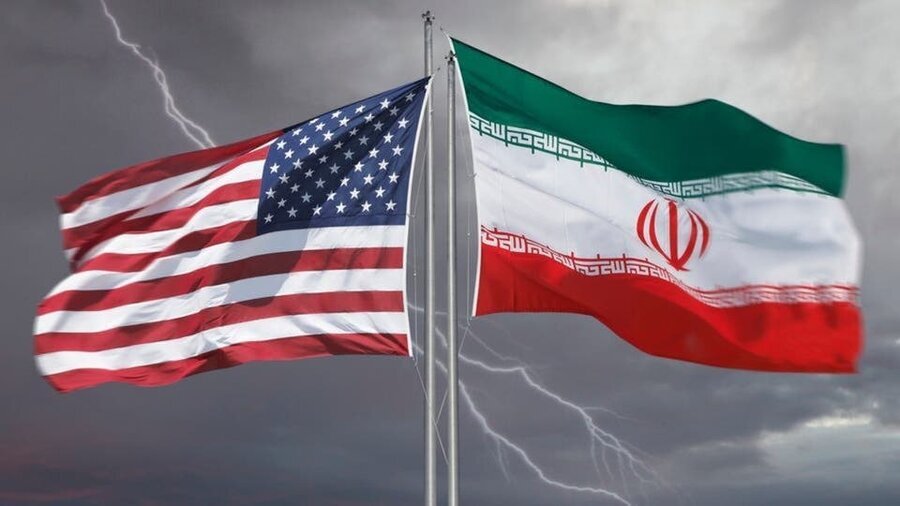U.S. fears Iran’s influence on American public opinion

TEHRAN - A senior U.S. intelligence official has warned that Iran, along with China and Russia, is trying to interfere in the 2020 U.S. presidential election, but a U.S. expert tells the Tehran Times that American officials fear Iran’s influence on the U.S. public opinion rather than its intelligence or cyber interference.
In a statement on Friday, William Evanina, the director of the National Counterintelligence and Security Center (NCSC), warned the American public about “foreign threats” to the U.S. election, accusing China, Russia, and Iran of pursuing efforts to sway the 2020 elections.
“Today, we see our adversaries seeking to compromise the private communications of U.S. political campaigns, candidates, and other political targets. Our adversaries also seek to compromise our election infrastructure, and we continue to monitor malicious cyber actors trying to gain access to U.S. state and federal networks, including those responsible for managing elections,” the statement said.
Evanina added, “In addition, foreign nations continue to use influence measures in social and traditional media in an effort to sway U.S. voters’ preferences and perspectives, to shift U.S. policies, to increase discord and to undermine confidence in our democratic process. The coronavirus pandemic and recent protests, for instance, continue to serve as fodder for foreign influence and disinformation efforts in America.”
The intelligence official also warned that “at this time, we’re primarily concerned with China, Russia, and Iran — although other nation-states and non-state actors could also do harm to our electoral process.”
He generally addressed efforts allegedly done by the three countries to influence the U.S. election.
Evanina accused China of “expanding its influence efforts to shape the policy environment in the United States, pressure political figures it views as opposed to China’s interests, and counter-criticism of China. Beijing recognizes its efforts might affect the presidential race.” He added that Russia is trying to weaken the U.S. and diminish its global role.
Evanina also claimed that “Russia continues to spread disinformation in the U.S. that is designed to undermine confidence in our democratic process.”
With respect to Iran, the U.S. official claimed that “Iran seeks to undermine U.S. democratic institutions and divide the country in advance of the elections. Iran’s efforts center around online influence, such as spreading disinformation on social media and recirculating anti-U.S. content.”
Some analysts reject what U.S. calls Iranian “disinformation” campaign on social media, saying the word “interference” needs to be defined.
“First of all, we need to define the word ‘interference’. What does it mean? If it means that some countries send their citizens to the U.S. to disrupt the elections by conducting cyber operations or rigging the elections, this type of interference is unlikely to occur,” Amirali Abolfath, a U.S. expert, told the Tehran Times.
“However, almost every country in the world is capable of using, to some extent, media and other information tools to influence public opinion in the U.S.,” Abolfath said, adding that efforts to influence the U.S. public opinion are not limited to countries like Russia, China, and Iran, but U.S. allies like Israel and Saudi Arabia are also trying to shape the public opinion in the U.S.
According to Abolfath, U.S. adversaries and allies alike convey their message to the American people. But there is a difference between the U.S. adversaries and allies’ messages. The expert noted that some messages and statements of adversaries are much stronger than those of the allies. For example, Iranian statements and messages about denial of justice in the U.S. resonate powerfully with large groups of American people. Iran’s messages about U.S. squandering taxpayers’ money on endless wars in West Asia, is another strong message of Iran.
“These messages are being heard in the U.S. It doesn’t matter where they come from. They resonate with the American people, whether they are coming from Iran or Cuba,” Abolfath told the Tehran Times, noting that the U.S. administration is trying to prevent these messages from reaching the American people under the pretext of election interference.
Abolfath also touched on the reasons behind Donald Trump’s fierce opposition to mail-in ballots, saying that high voter turnout in the November election could lead to Trump’s loss.
“Trump is fearful of high [voter] turnout, because when people turn out in large numbers to vote, the liberals, leftists and Democrats’ chance of winning go up,” pointed out Abolfath, adding that Democrats also believe that Trump opposes mail-in ballots because he fears higher voter turnout.
Trump has already implied that higher turnout would hurt him politically.
In an interview on “Fox & Friends” in late May, Trump alluded to proposals from Democrats in the coronavirus stimulus negotiations that would have vastly increased funding for absentee and vote-by-mail options.
“The things they had in there were crazy. They had things — levels of voting that, if you ever agreed to it, you’d never have a Republican elected in this country again,” Trump said.
He didn’t elaborate on the matter, but American analysts believe that a higher turnout could give Democrats hope for winning presidential elections. In an article on July 22, The New York Times dangled the prospect of getting Trump out of office as the core reason for voter engagement.
“The intensity around ousting Donald Trump, which we saw on full display in 2018, has not waned one bit. That enthusiasm in coming out to vote is saying, ‘I’m letting everyone know that I am showing up now — in a primary that’s over and in a pandemic — to send a signal that I am going to show up in November,’” the Times quoted Amy Walter, the national editor of the nonpartisan Cook Political Report, as saying.
SM/PA
